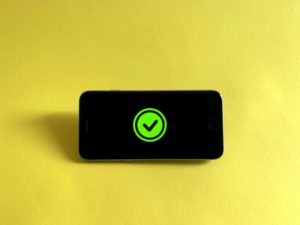
Welcome to FindBiometrics’ digest of identity industry news. Here’s what you need to know about the world of digital identity and biometrics today:
Another Biometric Privacy Lawsuit for Amazon (and Starbucks)
A newly filed class action lawsuit accuses Amazon and Starbucks of violating New York City’s “Biometric Identifier Information Law”, which came into effect in January of last year. The lawsuit, filed this week in Seattle, revolves around Amazon’s “Just Walk Out” technology, which lets participating customers pick up items and simply leave the store with them, with charges applied to their accounts automatically. In its defense, Amazon says the system doesn’t user biometric data, but rather that it uses broad, distinguishing traits to tell different customers apart while they’re in a given store.
PetSmart Reaches BIPA Settlement
The retailer PetSmart has reached a $424,000 settlement of a proposed class action lawsuit alleging that it violated Illinois’s Biometric Information Privacy Act (BIPA) with its enrolment of warehouse workers in a voice recognition system. The lawsuit alleged that PetSmart failed to obtain workers’ written consent for its collection of their biometric data, and that it failed to provide the disclosures required under BIPA.
TECH5 Brings Biometric Security to the ID Itself
TECH5 has announced a new solution, “T5-FaceLink”, that uses a biometric code to confirm that a given document hasn’t had its photo swapped by a fraudster. The solution is designed to scan the photo on a piece of ID and generate a code based on its face biometrics. The code is then printed on the document itself, alongside the photo. From there, subsequent scans of the photo can see if the biometrics depicted match the code from the original photo. If they don’t, that means the photo isn’t the same as the one that was originally printed on the identity document.
IDEMIA Delivers Strong Performance in NIST Forensics Testing
IDEMIA is celebrating a strong performance in testing by the National Institute of Standards and Technology (NIST) concerning latent fingerprint and palm print identification. In a statement, the company said that initial tests through the Evaluation of Latent Fingerprint Technologies (ELFT) program in October found its algorithms to be “the best to deliver accurate performance for fingerprint and palm print datasets,” but those tests didn’t include forensic expert features such as minutiae. The latest, complementary tests did, and found IDEMIA’s algorithms to have “two to five times less errors than the competitive algorithms, on most of the datasets.”
iDenfy Gets Another Crypto Partner
iDenfy has further extended its presence in the cryptocurrency sector, this time through a partnership with the Polish crypto wallet platform P100. iDenfy’s technology is being used in P100’s onboarding process to check new users against sanctions and watch lists. According to a Paypers report, P100 has implemented iDenfy’s “full-stack” ID verification system, which would also include the latter’s selfie-based biometric identity verification, in addition to its AML and KYC screening processes. The news comes after iDenfy’s announcement of a partnership with Dutch cryptocurrency exchange platform Coinmerce last month.
Google’s Mobile ID Comes to Maryland
Google’s mobile ID solution has arrived in Maryland, making the state the first in the country to let residents use a digital ID on both Android and iOS. The Android version of the digital ID is, like the iOS version, limited to official use at the airport checkpoints, both at the BWI Marshall Airport and at Ronald Reagan Washington National Airport. But the new system can help to protect users’ privacy, limiting the amount of personal information that needs to be shared at TSA checkpoints.
Apple to Enable Virtual ID Checks for Businesses This Fall
Meanwhile, Apple is preparing to launch business-focused ID functionality in its Apple Wallet this autumn. In a statement issued this week, the tech giant asserted that businesses will be able to check a customer’s age for purchases of restricted goods like alcohol, and to verify their identity for car rentals, using the mobile ID. The customer will simply hold their iPhone or Apple Watch near the participating business’s iPhone, which will use contactless communications to read the virtual ID’s information.
–
June 9, 2023 – by Alex Perala








Follow Us